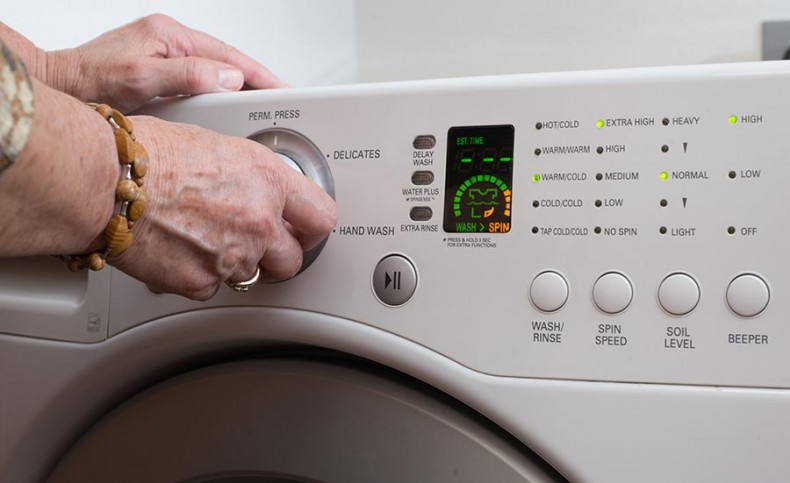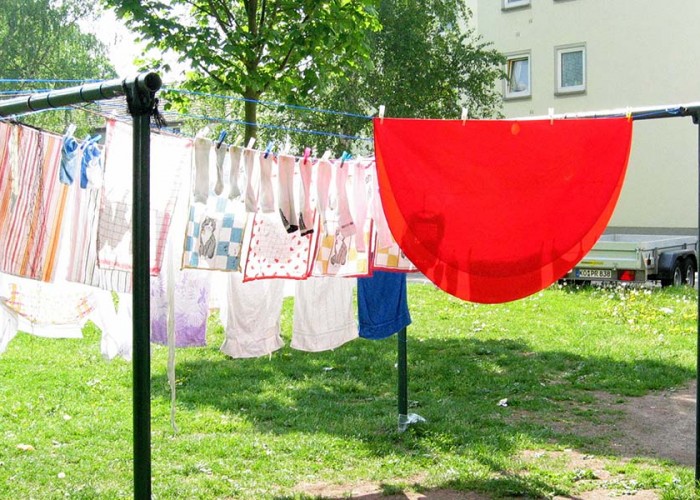Thinking of a new clothes washer?
By Hannah McKenzie
Wash your clothes in cold water using cold-water detergents whenever possible. Adjust load settings if you must wash a small load.
Q: My washing machine is finally starting to wear out. I’m assuming that an Energy Star washing machine is a good bet, but there are still so many choices! How do I choose?
A: Choosing one clothes washer amidst the sea of Energy Star-certified options can be overwhelming. You are on the right track by only considering Energy Star-certified clothes washers, because they offer numerous benefits for your sanity and wallet including:
Energy savings. Energy Star-certified clothes washers use about 25 percent less energy than standard washers. The spin cycles are also much faster so the clothes need less time in the dryer, thus saving more energy.
Water savings. Energy Star-certified clothes washers average 40 percent in water savings compared to standard washers. For example, a full-size Energy Star-certified clothes washer uses 13 gallons of water per load compared to the 23 gallons used by a standard washer, and it produces equally clean clothes.
Clothes life span. The American Council for an Energy-Efficient Economy states, “Field studies have shown that resource-efficient washers are gentler on clothes. Less drying time further reduces wear and tear. With the average load of laundry valued up to $500, this can add up to substantial additional savings.”
Load capacity. Larger capacity means fewer loads of laundry and less of your time in the laundry room.
Narrowing down the options
Choosing wisely is important since the average American family washes about 300 loads of laundry each year and washers last an average of 10 to 12 years. Energy Star models have a wide range of energy and water usage, so you’re blessed and burdened with many options.
Find out what washers are available in your area or from your preferred store. Determine which washers fit within your price range and consider good and bad reviews from owners and organizations like Consumer Reports. Keep in mind that Energy Star-certified clothes washers are available as top-load and front-load, though high-efficiency front-loaders continue to out-perform even the best top-loaders.
Once you’ve narrowed down your choices to a handful of clothes washers, compare the energy and water use to make a final decision. The Energy Guide is a yellow card that indicates an estimated annual energy cost. They are attached to the showroom models and found with the online product specifications. It’s a quick and easy way to compare models. Also, pay particular attention to the water factor which can be found at tinyurl.com/oowdsdo or in the product specifications. For each whole number drop in a washer’s water factor — for example from 8.0 to 7.0 — you’ll save about 1,000 gallons of water each year. This may be a huge benefit if you have an overburdened septic system or municipal water bills.
Habits
Your laundry habits can also make a long-term impact on cost savings.
Load size. Wash and dry full loads when possible. Overloading the washer may reduce the machine’s cleaning effectiveness, while overloading a dryer will prevent clothes from drying completely. Multiple small loads are also less efficient than running a full load. Read the washer user’s manual to ensure success.
Water temperature. Water heating accounts for 70 to 90 percent of clothes washer energy use. Use cold water when possible for washing, and always use cold water for rinse cycles.
It is exciting to have so many affordable and resource-efficient clothes washers to choose from. An Energy Star-certified clothes washer is an easy way to save water, energy and time. Next month we will explore saving more time and money with clothes dryers.
-
More laundry-related ways to save energy
-
Share this story:






